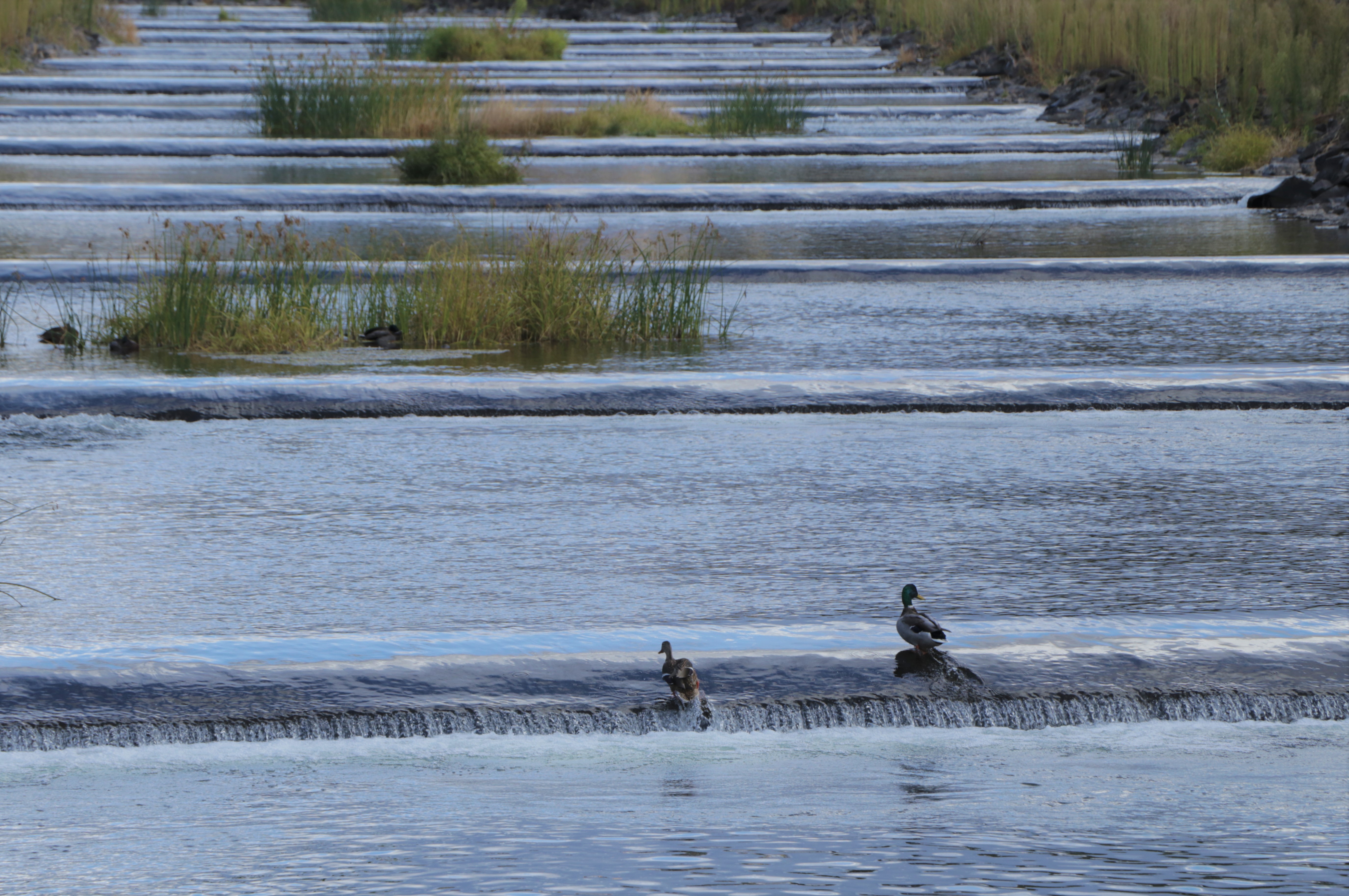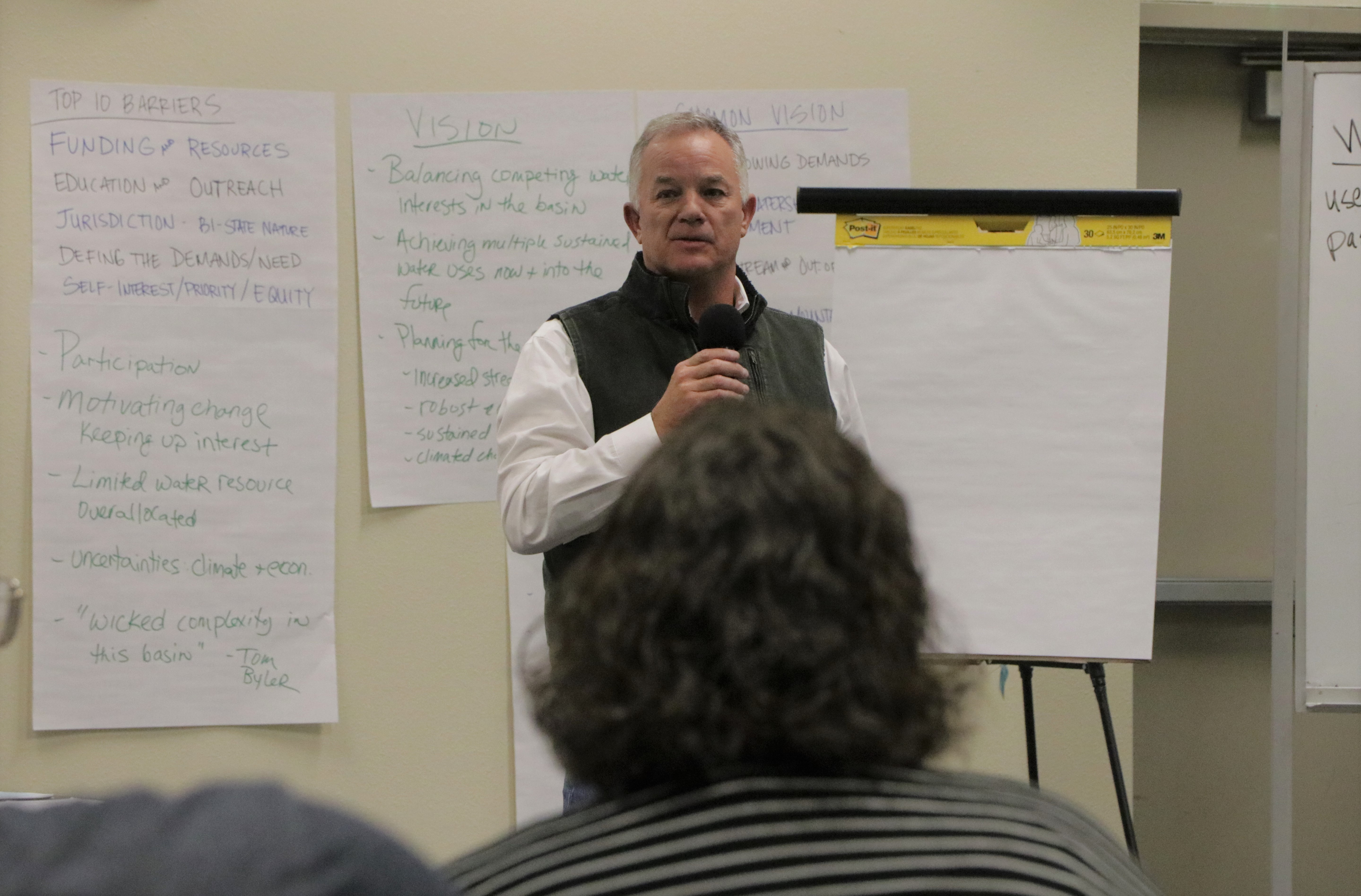
A movement toward a long-term water strategy for the Walla Walla River basin is advancing, even with a statewide "Stay Home, Stay Healthy" order in place to slow the spread of COVID-19.
In a videoconference last week, more than 70 stakeholders marked the end of initial preparation work and reviewed next steps toward Walla Walla Water 2050, a strategic plan that will guide water resource management for the next 30 years.
The Walla Walla watershed supports farming, endangered species habitat, and tourism, but more water is claimed on paper than actually is available in the watershed. This leads to stiff competition among users, and increasing concerns about how to meet current and future needs.
“These are uncertain times, and remote work creates challenges, but we’re focused on getting going,” said Tom Tebb, director of Ecology’s Office of Columbia River. “We believe we can accomplish a lot of the planning work with social distancing measures.”
Tom Tebb, director of Ecology’s Office of the Columbia River, addresses Walla Walla basin water users in October, 2019. The group has since been working toward a long-term water strategy.
Recent accomplishments
In October, the Office of Columbia River — advised by the Walla Walla Watershed Management Partnership and Confederated Tribes of the Umatilla Indian Reservation — invited Washington and Oregon stakeholders to refocus their efforts.
They’ve since held monthly public meetings and created a resource library for information sharing between agencies and stakeholders — including those in Oregon — as well as a website and email listserv for distributing information with the public.
Ecology’s senior water management leaders have been engaging regularly with counterparts in Oregon and the Umatilla Tribes to identify issues and solutions collaboratively.
Because the headwaters of the Walla Walla watershed are located in Oregon, Ecology is involved in a flow enhancement study that will assist with by identifying options to protect bi-state flow. A groundwater study is also underway to aid understanding of potential cross-boundary water management decisions.
Group effort
The work has renewed and broadened involvement from agriculture and environmental interest groups, as well as local, state, tribal and federal governments. Each group was tasked with self-selecting representatives to form a 15-member Strategic Plan Advisory Committee.
Other stakeholders are getting involved by attending regular public workshops and signing up for working groups that will focus on the following issues: Water Supply Needs, Ecological Function, Land Use, Implementation, Administrative, and Studies/Monitoring/Data. These working groups will meet at least once a month — remotely until further notice — to complete specific assignments that inform the strategic plan.
Public workshops, open to all stakeholders, will then provide an opportunity for everyone to review, discuss, and refine the output of the working groups from a geographic perspective.
Several videoconference participants applauded the work being done to maintain forward movement despite virus-related obstacles.
“This is a difficult time, but I think we’ll move ahead rapidly now into the work we’ve been anticipating for quite a while,” said Judith Johnson, Walla Walla Watershed Management Partnership board member. “We have an enormous amount of talent and knowledge here, and I hope everyone will continue to participate to create a truly integrated plan for water management in the Walla Walla basin.”
Anyone interested in registering for one or more working groups is encouraged to visit our website to learn more, and contact caroline@cascadiaconsulting.com to sign up. A meeting schedule will be posted on the website soon and announced via our email listserv.
“We’re off to a great start, and I continue to be impressed with and value the participation we’ve had so far,” Tebb told videoconference attendees last week. “We’re in this together, we can’t do it without you. This is our opportunity to put pen to paper on what we want this basin to look like and how we get there. To create a living plan, building on the great work that’s already been done.”
In 2009 the Washington Legislature allowed the Walla Walla Watershed Management Partnership to operate outside of Ecology’s usual regulatory oversight and work toward locally-sourced solutions during a pilot period that ended last year.
The pilot was extended to 2021 to allow for independent financial and performance audits as required by the Legislature, and to give participants time to determine the best path forward. A framework is due to the Legislature in November 2020, and a strategic plan is due by June 2021.
Learn more about the Walla Walla Water 2050 water management plan at ecology.wa.gov/WallaWalla2050.


